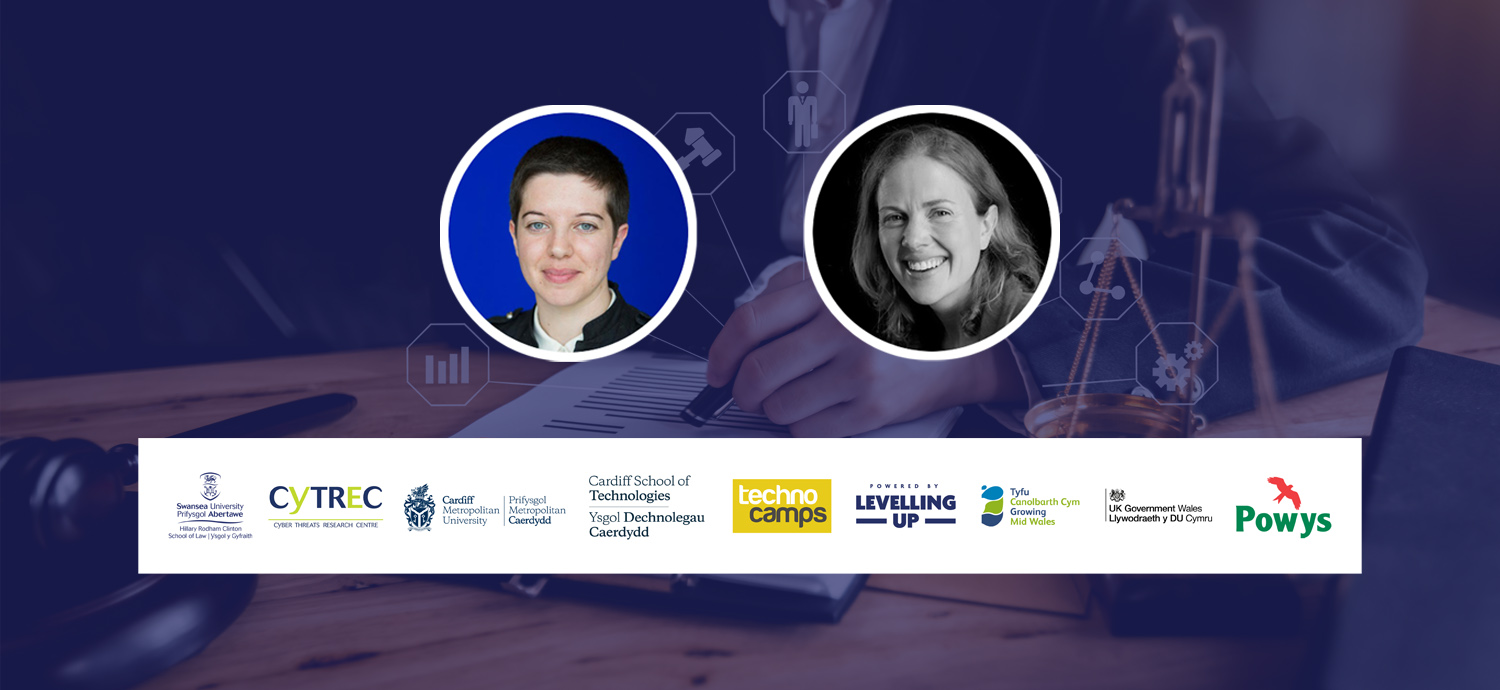
A revolutionary new partnership will see a range of cyber law workshops delivered as part of the Digital Technology Learning Support Network (DTLSN): Digital Skills Enrichment Camps (DTLSN) project, funded by the UK Shared Prosperity Fund.
The DTLSN is a project that aims to improve digital inclusion (confidence, trust, awareness, and safety) and enhance digital skills, in the Powys area. This will be achieved through the delivery of digital skills camps and workshops, to take place over the duration of the project, in the Spring, Summer and Autumn of 2024.
The project is led by Dr Fiona Carroll (Cardiff Metropolitan University), in collaboration with Technocamps and the School of Law at Swansea University, with Dr Sara Correia-Hopkins taking lead for Swansea.
The primary beneficiaries of these activities will be people in rural communities in the Powys area (such as adults and school children, and young people Not in Employment, Education and Training (NEET)). Workshops will also be delivered to Powys’ businesses and organisations including small and medium-sized enterprises (SMEs), startups and entrepreneurial ventures and nonprofit organisations.
The project’s vision is to engage grassroots organisations and inspire people from a more diverse range of backgrounds to engage with digital technology. It will ensure that all young people (including NEET) and adults (both economically active and inactive) are given the opportunity to reach their potential in relation to the STEM projects (Science, Technology, Engineering and Maths).
Through its planned range of camps and workshops, the project will increase levels of digital skills, and in doing so, will make a significant contribution to the Welsh economy and, importantly, the local Powys community.
Speaking of co-leading the workshops, Dr Sara Correia-Hopkins said:
“I am looking forward to engaging with community organisations, volunteers and the wider community in Powys, and together exploring the laws of cyber space which matter most to them.
A key aspect of digital literacy is understanding our rights and responsibilities in the digital world. We need to involve communities in exploring what the laws of cyberspace are, to enable participation in digital citizenship and the digital economy. It is also a key step to ensure communities priorities are reflected in our laws.”
